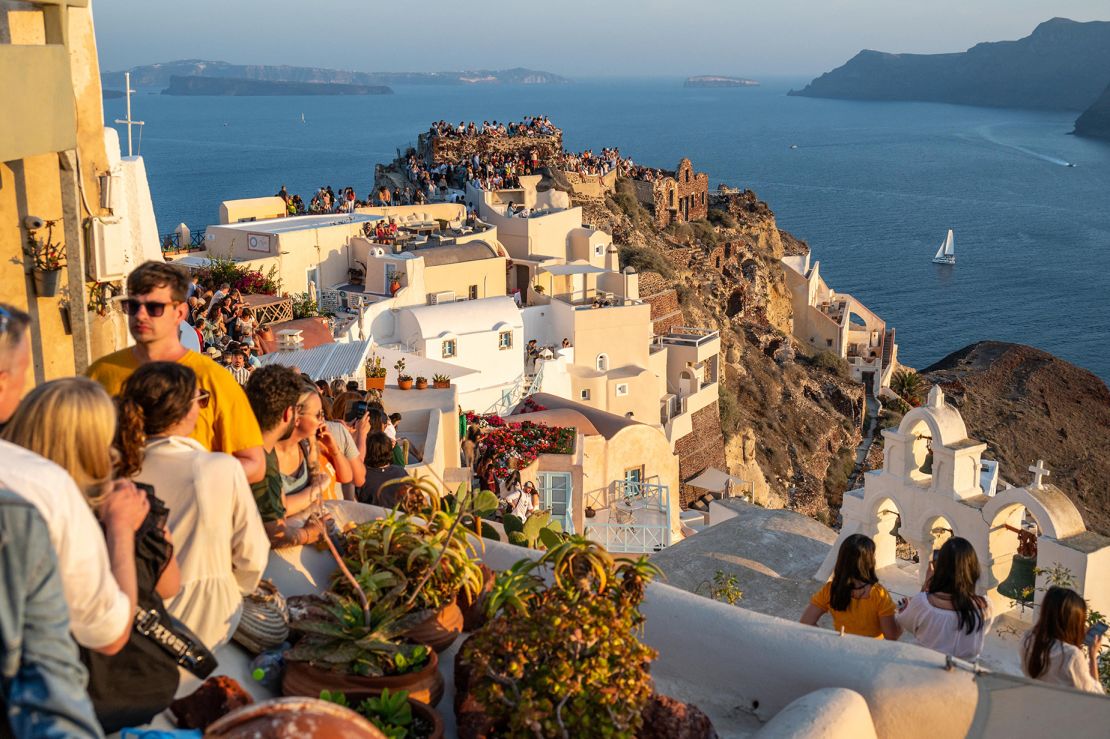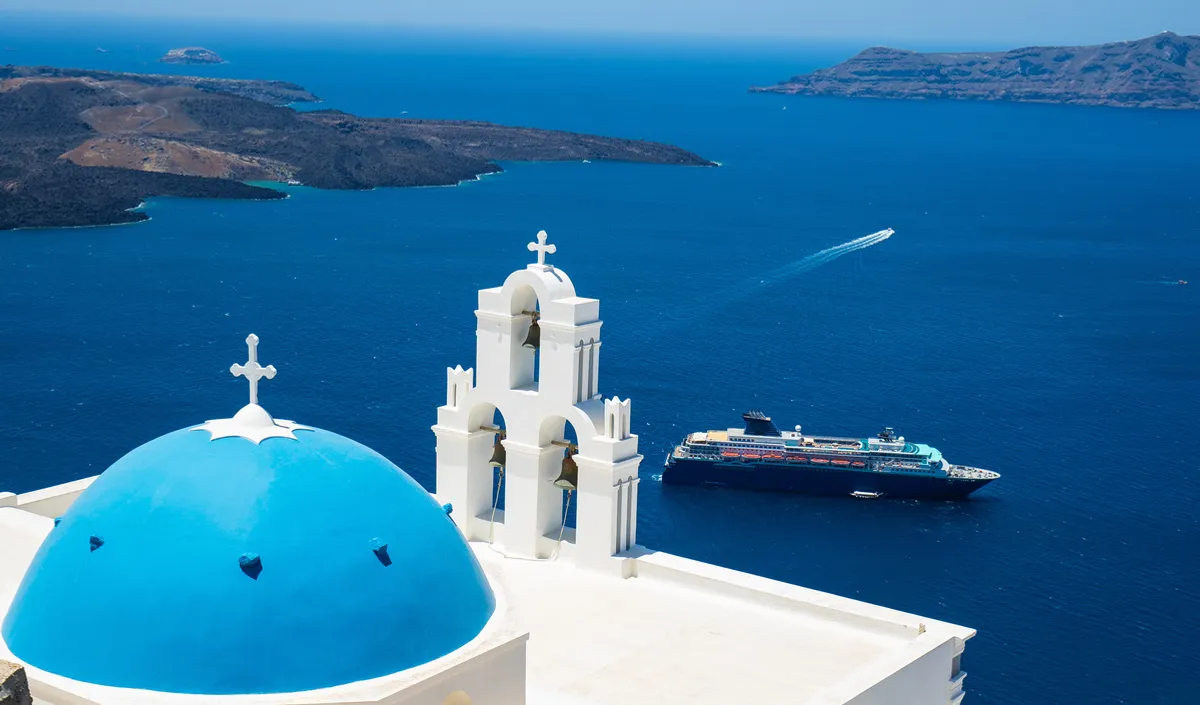Greece is set to introduce a 20-euro levy on cruise ship visitors to the islands of Santorini and Mykonos during the peak summer season, aiming to prevent overtourism, Prime Minister Kyriakos Mitsotakis announced on Sunday.
Tourism is a key pillar of the Greek economy, which is still recovering from a decade-long crisis that erased a quarter of its output.
However, some of Greece’s most popular destinations, such as Santorini—a picturesque island with 20,000 permanent residents known for its charming villages and pristine beaches—are at risk of being overrun by mass tourism.
During a press conference following the presentation of his main economic policies for 2025, Mitsotakis emphasized that the issue of overtourism is confined to a few select locations.
“Greece does not have a structural overtourism problem,” he clarified. “Only some destinations face significant pressure during certain weeks or months, and we must address this.”

Santorini Island Tourism (Photo: Getty Images)
Mitsotakis pointed out that cruise ships have contributed to the strain on Santorini and Mykonos, prompting the introduction of the levy. In 2023, Greece’s tourism revenues reached approximately 20 billion euros, driven by nearly 31 million tourist arrivals.
In Santorini, there have been calls for limits on tourism, similar to measures taken in other European hotspots like Venice and Barcelona. Mitsotakis explained that part of the revenue from the cruise tax would be funneled back to local communities for infrastructure improvements.
Additionally, the government plans to regulate the number of cruise ships allowed to dock simultaneously at certain destinations and implement measures to safeguard the environment and address water shortages on the islands.
Mitsotakis also highlighted plans to increase taxes on short-term rentals and impose a ban on new licenses for such properties in central Athens, with the aim of boosting housing availability for permanent residents.
The government is expected to provide further details on these measures on Monday.











































